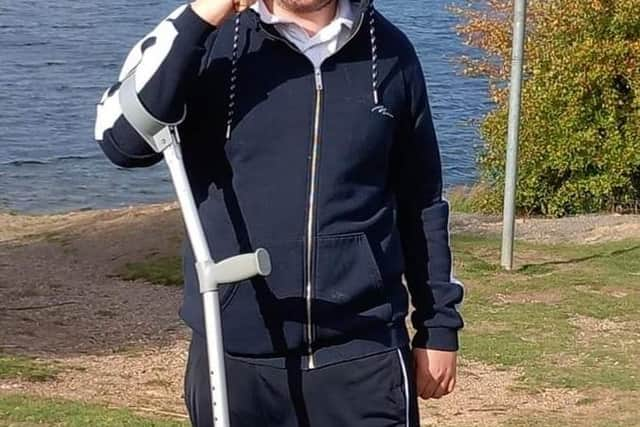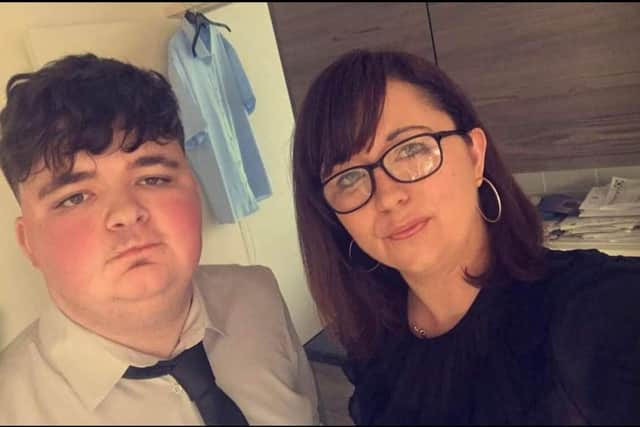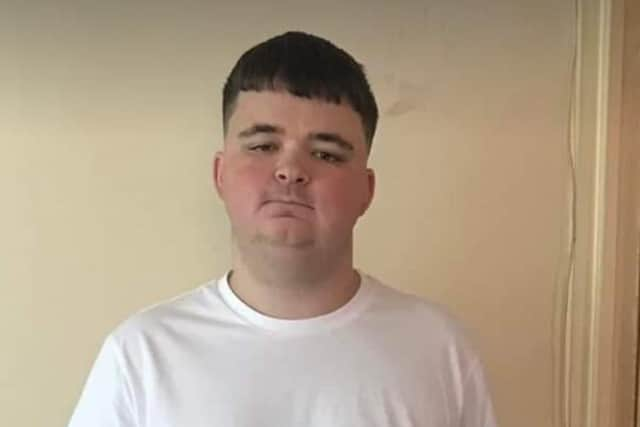Milton Keynes teenager who suffered severe stroke helps others to recognise symptoms
and live on Freeview channel 276
A 17-year-old boy who suffered a stroke that rendered him unable to walk or talk is urging other people of all ages to be aware of symptoms on the condition.
Jack McNeill from Beanhill woke up one morning with a headache so painful that he struggled to do anything.
Advertisement
Hide AdAdvertisement
Hide AdHis mum Angela Evans called 111 and paramedics arrived to check Jack and decided to take him to A&E.


“Doctors told us Jack was experiencing a tension headache, and advised he went back home, took some pain killers and got lots of rest,” said Angela, who works as a carer.
Feeling relieved, Jack took some paracetamol and got into bed. Shortly afterwards Angela heard a loud thud from the bedroom.
"I rushed in to find him on the floor, unable to walk or talk,” she said.
Advertisement
Hide AdAdvertisement
Hide AdAngela dialled 999 and Jack was rushed to hospital for an MRI scan on his brain,


Doctors quickly realised he had suffered a major stroke that had left him with such severe left-sided weakness that they didn’t think he would be able to walk again.
Jack spent 12 weeks in hospital and three months in a rehabilitation unit. Determined to prove doctors wrong, he rebuilt enough strength to to walk again with a splint on his foot.
The stroke happened in 2020, a week before Jack’s 18th birthday.
Advertisement
Hide AdAdvertisement
Hide AdHe said: “Lying in my hospital bed on the stroke ward full of elderly patients, I had to ask my mum if it was true. Had I really had a stroke? It just didn’t seem right – I was only 18 years old, and everyone around was so old.


"It’s been a long road to recovery, and I’m still living with the effects of my stroke every day. I hope to raise awareness to other young people by sharing my story. My motto in life is: never give up.”
Today, on World Stroke Day, Jack is helping the Stroke Association spread the message about the ‘FAST’ acronym, which helps people recognise the signs of a stroke and get rapid treatment.
FAST stands for:
Face – has their face fallen on one side? Can they smile?
Arms – can they raise both their arms and keep them there?
Speech – is their speech slurred?
Time – time to call 999 if you spot any of these signs
Research has revealed that more than half of UK teenagers are unaware of FAST and many don’t know that calling 999 is the first thing you should do if someone is having a stroke.
Advertisement
Hide AdAdvertisement
Hide AdJuliet Bouverie OBE, chief executive of the Stroke Association, said: “Stroke strikes every five minutes in the UK, killing tens of thousands of people and leaving thousands of stroke survivors with complex and severe disability.
“Stroke can affect anyone of any age. The average age when someone has a stroke is 76 years old and one in four stroke survivors is of working age. Around 400 children have a stroke in the UK every year.”
Doctors are still unsure as to why Jack had a stroke, said his mum.
"Jack’s experience has really made us passionate to spread the message that a stroke can happen to anyone, at any age,” she said.